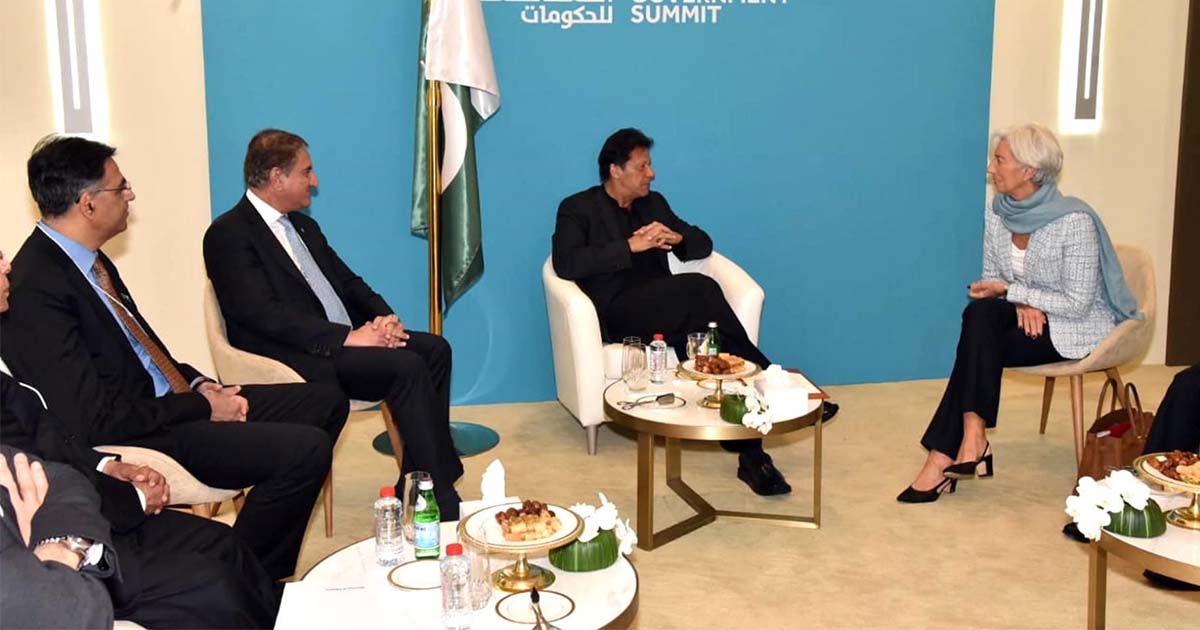I cannot understand why the government is delaying going to the IMF. The only reason could be political. Otherwise, everyone knew even before this government came to power and even before the elections that Pakistan would have to go to the IMF.
The deficit is just too large for any other source to fill; the bilateral amounts that we are getting from Saudi Arabia and the UAE are not going to solve the problem. And financing from other banking sources, including debt, is not possible without the IMF agreement.
The financial market will simply not move unless and until there is an IMF agreement. There seems to be no rational economic reason for not going to the IMF. Since the government came into power, it has made very loud accusations against the outgoing government.
The IMF cannot have any objection to that because the IMF’s objective is the reduction of the budget deficit.
I think they could have easily laid out how bad the economic situation was, blamed the previous government and said that it just has to be fixed and it will be painful. What we have now done is that we have taken twists and turns and promised to not allow the pain to be transferred, which is not possible. There is no way the pain cannot be transferred to the people.
The financing gap is between USD 12 to 15 billion. If you have USD 6 billion [from Saudi Arabia and UAE] then the rest of the amount still needs to be plugged. Secondly, the amount of USD 12 to 15 billion that we need this year, we will also need it next year and the year after that.
Read more: No Big (IMF) Deal!
Do you think Saudi Arabia, the UAE and China will continue to pour money into Pakistan this way? No country will do so. An IMF program is inevitable, unless and until they compromise the country’s political sovereignty and take massive amounts from some other country, but for that political concessions will have to be very large.
Like Sri Lanka had to hand over a port to China, what are we willing to hand over? That is where the question will come. Certainly, the new taxes will affect the common man. We continue to blame the IMF for everything, but the IMF has only two conditions, that your budget deficit be within acceptable limits and that you reduce your current account deficit.
Since the government came into power, it has made very loud accusations against the outgoing government.
The current account deficit, of course, is far more difficult to manage because you cannot print dollars and you cannot increase exports overnight, but of course, we can drastically reduce our imports. We can immediately ban the import of all non-essential consumer items.
That could immediately save more than a billion dollars a year. On the domestic side, the budget deficit can either be reduced by raising taxes or by reducing non-development expenditure, and I am not talking about selling cattle and cars. I am talking about serious cuts in non-development expenditure. It is possible. The IMF’s main demand is to reduce the budget deficit.
Read more: IMF bailout requires steep tax measures
And if it is asking us to raise revenue, we can turn around and tell them that look we are not raising revenues, we are going to cut our expenditure. The IMF cannot have any objection to that because the IMF’s objective is the reduction of the budget deficit.
IMF has no interest in how much tax we collect or don’t collect. It is because when we don’t come up with a solution, the IMF gives us a solution and their solution is to raise taxes. We can go back to them and tell them we are not going to raise taxes, instead, we will cut our expenditure.
Dr. Kaiser Bengali has been an economic advisor to the Governments of Baluchistan and Sindh. He has headed prestigious institutions like the Social Policy and Development Center (SPDC), Karachi, and Sustainable Development Policy Institute (SDPI), Islamabad.
The views expressed in this article are the author’s own and do not necessarily reflect the editorial policy of Global Village Space.


